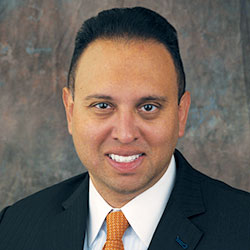By Dave Rao

Some accounts have no designated beneficiary. Rarely, the same thing occurs with insurance policies. This is usually an oversight. In exceptional circumstances, it is a choice. What happens to these accounts and policies when the original owner dies?
The investment or insurance firm gets the first chance to determine what happens. On many retirement plans, for example, a spouse is often the default beneficiary, even if not named on a beneficiary form. If the deceased has no spouse, then the plan assets may just become part of that person’s estate. Brokerage accounts without any designated beneficiaries are also poised to become part of the estate of the decedent. The next stop for these assets could be probate.1
The state may end up deciding where the assets go when beneficiary forms are blank. If the deceased failed to name account or policy beneficiaries but had a valid will or other valid estate documents, this will influence the path from here — but it may not exempt the assets from probate court.
If no legally valid estate documents exist, then the deceased party dies intestate, and the state determines the destiny for the assets. Most states go by the same ladder of potential inheritors — surviving spouse at the top, then children, then grandchildren, then parents, grand- parents, siblings, nephews or nieces. If absolutely no legitimate heir can be found, then the assets become property of the deceased’s state of residence.2
What about life insurance policies?
A life insurance policy usually has at least two levels of designated beneficiaries, and it is rare when a policyholder outlives them and even rarer when a policy has none. In such a circumstance, the proceeds of the life insurance policy become part of the estate of the policyholder upon the policyholder’s death. 3
Several factors will affect the cost and availability of life insurance, including age, health and the type and amount of insurance purchased. Life insurance policies have expenses, including mortality and other charges. If a policy is surrendered prematurely, the policyholder also may pay surrender charges and have income tax implications. You should consider determining whether you are insurable before implementing a strategy involving life insurance. Any guarantees associated with a policy are dependent on the ability of the issuing insurance company to continue making claim payments.
What if a person simply lacks possible heirs, or sees no worthy heirs? Occasionally, this happens. Some people remain single for life, and others are estranged from relatives or heirs who would otherwise be beneficiaries.
A person in this situation has a choice: charity. Perhaps a charitable or nonprofit organization deserves the assets. Perhaps a college or university would be a worthwhile destination for them. Choices exist, and those who are single can explore them as they consider their estate.
For more information, visit raowp.com.
Citations
1. Kiplinger, June 6,2022
2. Schwab.com, September 24, 2021
3. Smart Asset, April28, 2022
Our firm does not render legal or tax advice. This article was written for our firm and provided courtesy of MarketingPro. Investments in securities and insurance products are NOT FDIC-INSURED/NOT-BANK GUARANTEED/MAY LOSE VALUE. Securities and advisory services offered through Nations Financial Group, Inc. (NFGI), member FINRA/SIPC, a Registered Investment Adviser. 4000 River Ridge Dr. NE, Cedar Rapids, IA, 52402. Dave Rao is a Registered Representative of NFGI. Rao Wealth Partners is an independent firm and not affiliated with NFGI. First Clearing carries your account and acts as your custodian for funds and securities deposited directly by you, through NFGI, or as a result of transactions it processes for your account. First Clearing is a trade name used by Wells Fargo Clearing Services, LLC, Member SIPC, a registered broker-dealer and non-bank affiliate of Wells Fargo & Company.
